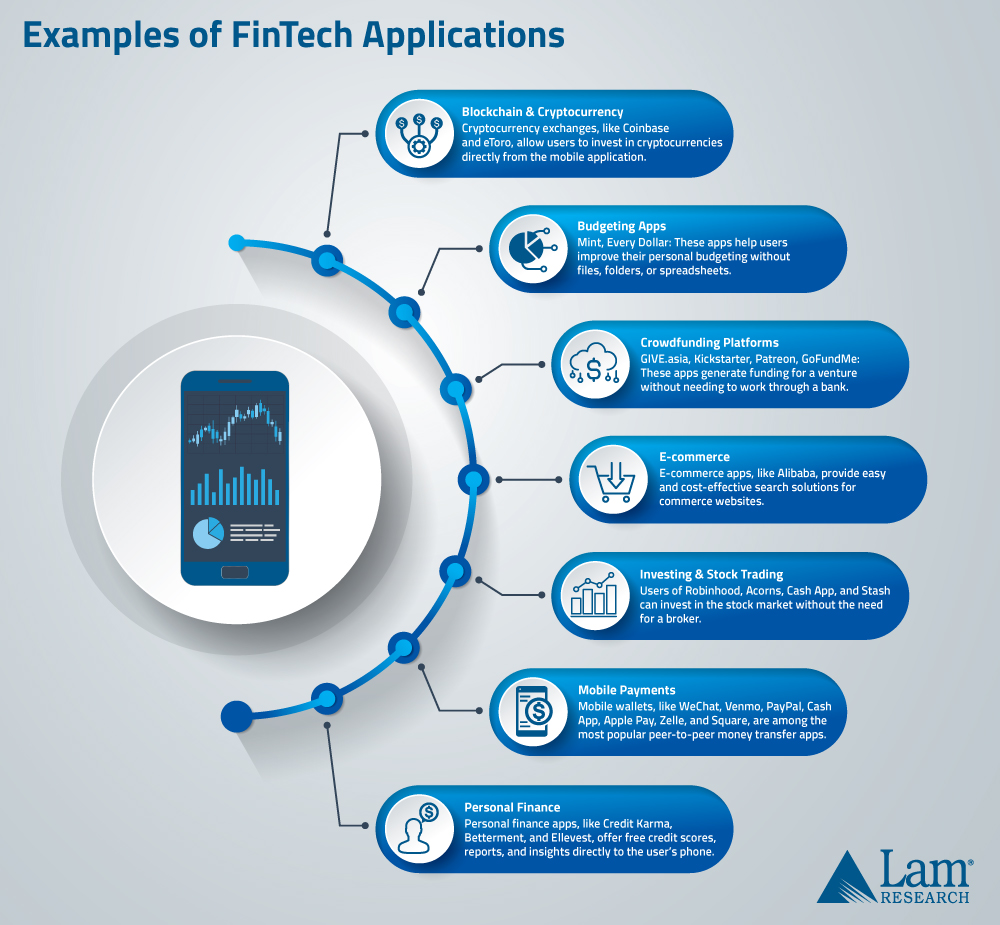
The movement of money has undergone substantial changes over the years. With the advent of financial technology, or FinTech, the financial services industry has transformed. Enabled by today’s powerful microprocessors and memory chips, the ability to generate, store, and analyze data is helping us make smarter, financial decisions. Companies and consumers can better manage their financial operations by using software and algorithms often found in everyday electronic devices. Let’s look at these advancements.
What is FinTech?
FinTech encompasses all financial technology or any company that provides financial services with the internet, mobile, software or cloud services.
This phenomenon has entirely changed the way the average person understands and approaches their finances. In the not so distant past, using cash or checks was the status quo. Now, with FinTech, it is far more likely that money is exchanged using WeChat, Venmo, or Cash App. Stockbrokers were the gatekeepers of the investment world – limiting access to the average person. Now, however, apps like Robinhood or eToro allow users to invest in stocks or cryptocurrencies directly from their phones.

Advantages of FinTech
The benefits of financial technology are seemingly endless. First, they’re easy to use. Many FinTech apps have adopted user-friendly interfaces, which strip away the complexities of investing and budgeting, and simplify them to remove barriers to entry for potential users. New FinTech products have adopted game-like designs, which make investing more attractive to the younger audience. These applications give users unprecedented control of their finances — from saving money to sending money – and allow users to do so from the couch or on the go.
The development of FinTech applications has also sped up the flow up money for the average person. While previous generations were often limited by third-party money managers and accountants, today’s FinTech users can invest in major stocks using their phones in seconds.
Transforming the Financial Services Industry
The FinTech revolution has allowed users to easily keep track of their income and expenses. FinTech has lowered the age of the average investor, with easy-to-use apps and user-friendly interfaces, there is far more investment opportunity for younger individuals. Investors and wealthy individuals are becoming younger than ever, with the U.S. now boasting over 600,000 millionaire millennials. Additionally, with options like purchasing fractional shares, the movement of money has never been easier to navigate, and the barriers to entry in the world of investment have been largely removed. The future of FinTech is not only brighter, but younger, and borderless.
FinTech apps are becoming the gold standard for technology – pushing the boundaries of what a single user can do from a mobile phone. In the past 10 years, $4.68 billion has been pledged on Kickstarter to crowdfund exciting projects. Popular payment app, Venmo, has amassed a user base of more than 52 million. With new players entering the fray to challenge and improve upon existing offerings, it is likely the number of FinTech users only continues to grow.

Chip Technology & The Future of Finance
These era-defining developments would not be possible without chip technology. With more efficient and powerful chips enabling our devices, users can budget their expenses with less battery consumption, transfer money to peers faster than ever, and store more data on their devices. Additionally, now, machine learning is being used in fraud detection, to predict the legitimacy of future transactions, with more speed and efficiency of information processing than a human.
Server farms are critical components of digital banking, as they’re equipped to store large quantities of data for mobile banking users to complete digital transactions. Server farms consist of several thousand computer servers to supply functionality to the entirety of digital banking and computing. Not only are these server farms built through chip technology, but the improvement of these farms is dependent on advancements in the chips used.
Chip technology enables FinTech, allowing people to make smarter, financial decisions on the go.